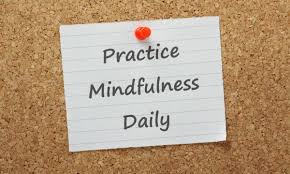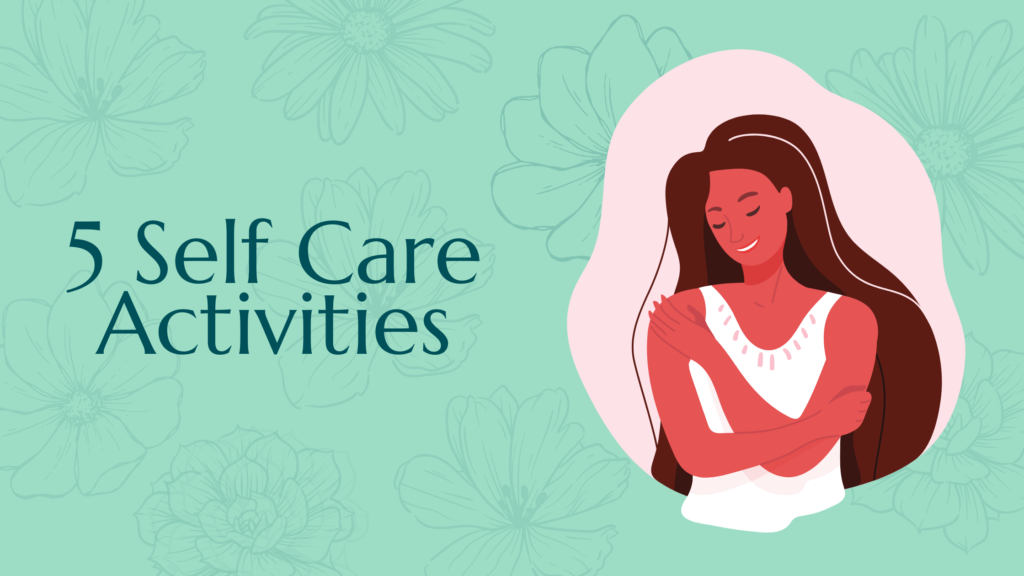Self-care activities are often overlooked in favor of more time-consuming hobbies, but they can actually be a great way to wind down and feel good. With so much happening around the world, it’s easy for everyone to feel overwhelmed, stressed out, and exhausted. And gradually, the body starts showing signs that it needs some TLC: stress headaches, insomnia, low immunity levels, and more. As students go through their day, it’s important that they make time for self-care – here are some simple ways you can do this!
Contents
- 1 What Are Self-Care Activities?
- 2 25 Self-Care Activities
- 2.1 1. Exercise regularly
- 2.2 2. Eat a healthy diet
- 2.3 3. Get enough sleep
- 2.4 4. Take breaks throughout the day
- 2.5 5. Connect with friends and family
- 2.6 6. Practice relaxation techniques
- 2.7 7. Spend time in nature
- 2.8 8. Take care of your body
- 2.9 9. Laugh often
- 2.10 10. Make time for yourself
- 2.11 11. Organize your time
- 2.12 12. Say no
- 2.13 13. Take a break from electronics
- 2.14 14. Connect with others who have similar interests
- 2.15 15. Seek professional help if needed
- 2.16 16. Drink plenty of water
- 2.17 17. Practice mindfulness
- 2.18 18. Take up a new hobby
- 2.19 19. Prioritize your health
- 2.20 23. Practice mindfulness
- 2.21 24. Journal
- 2.22 25. Get organized
- 3 28 Self-Care Activities At Workplace
- 3.1 1. Take a walk around the block
- 3.2 2. Meditate
- 3.3 3. Drink tea
- 3.4 4. Stretch
- 3.5 5. Eat healthy foods
- 3.6 6. Take breaks
- 3.7 7. Journal
- 3.8 8. Listen to music
- 3.9 9. Take a nap
- 3.10 11. Talk to a colleague
- 3.11 12. Organize your desk
- 3.12 13. Take a break from technology
- 3.13 14. Visualize yourself relaxing
- 3.14 15. Exercise a bit
- 3.15 16. Eat a healthy snack
- 3.16 17. Maintain a To-do list
- 3.17 18. Take a hot bath before work hours
- 3.18 19. Talk to a therapist
- 3.19 20. Take a break from work
- 3.20 21. Practice deep breathing
- 3.21 22. Visualize yourself succeeding
- 3.22 23. Take a vacation
- 3.23 24. Talk to a friend or family member
- 3.24 25. Set goals
- 3.25 26. Declutter your space
- 3.26 27. Take a walk
- 3.27 28. Practice meditation
- 4 How To Find Time For Self-Care Activities?
- 5 Conclusion
- 6 A Word From Therapy Mantra
What Are Self-Care Activities?

Self-care activities can be anything that makes you feel good and helps you relax. They can be something as simple as reading a book, taking a bath, taking a walk, or listening to music. The important thing is that you find something that works for you and that you will actually do!
When we’re busy, it can be hard to make time for self-care. But it’s important to remember that taking care of ourselves is just as important as taking care of our work and our families. In fact, if we’re not taking care of ourselves, we’re not going to be able to take care of anyone else properly.
25 Self-Care Activities
Self-care is the practice of taking action to preserve or improve one’s own health. It is an important part of managing stress and maintaining mental and physical well-being. There are many self-care activities that can be beneficial, such as exercise, relaxation techniques, healthy eating, and spending time with friends and family.
Here are 100 self-care activities that can help you stay healthy and happy:
1. Exercise regularly
Exercise is one of the best ways to boost your mood and improve your overall health. It releases endorphins, which make you feel good, and has been shown to improve mental health conditions such as depression.
2. Eat a healthy diet
Eating a balanced diet is essential for maintaining physical and mental health. Foods that are high in antioxidants, vitamins, and minerals can help protect against diseases and improve moods.
3. Get enough sleep
Most people need around eight hours of sleep per night for optimal health. Sleep deprivation can have negative effects on both the mind and body.
4. Take breaks throughout the day

Taking regular breaks can help reduce stress and rejuvenate the mind and body. Schedule time each day to do something that you enjoy, such as reading, listening to music, or taking a walk.
5. Connect with friends and family
Spending time with loved ones can help reduce stress and promote happiness. social interaction has been shown to have many health benefits, such as improving cardiovascular health and reducing the risk of depression.
6. Practice relaxation techniques
Relaxation techniques such as yoga, meditation, and deep breathing can help reduce stress levels and improve moods.
7. Spend time in nature
Spending time outdoors in nature has been shown to improve mental health conditions such as anxiety and depression. Exposure to sunlight is also beneficial for overall health.
8. Take care of your body
Taking care of your body by getting regular exercise, drinking plenty of water, and getting enough sleep can help reduce stress levels and improve moods. Your physical health is just as important as your mental health. Make sure to eat healthy foods, get enough exercise, and get enough sleep. Taking care of your body will help you feel better both mentally and physically.
9. Laugh often
Laughter is a powerful way to boost your mood and improve your overall well-being. Laughter therapy has been shown to be beneficial for mental health conditions such as depression and anxiety.
10. Make time for yourself
It is important to make time each day for activities that you enjoy and that are just for you. This can help reduce stress and promote relaxation.
11. Organize your time

Organizing your time can help reduce stress and make life more manageable. Having a plan for each day can help ensure that you stay on track and avoid feeling overwhelmed.
12. Say no
It is ok to say no when you are feeling overwhelmed or stressed. Saying no can help protect your time and energy so that you can focus on taking care of yourself.
13. Take a break from electronics
Too much exposure to electronic devices can be harmful to both the mind and body. Taking regular breaks from electronics can help reduce stress levels and promote relaxation.
14. Connect with others who have similar interests
Connecting with others who share your interests can be a fun way to relax and de-stress. Spending time with others who understand your passions can help you feel more connected and supported.
15. Seek professional help if needed
If you are struggling with a mental health condition, it is important to seek professional help. Professional treatment can provide the support you need to manage your condition and improve your quality of life.
16. Drink plenty of water
Drinking plenty of water can help keep the body healthy and hydrated. It is also a great way to reduce stress levels.
17. Practice mindfulness
Mindfulness is the practice of being aware of the present moment and accepting thoughts and feelings without judgment. Mindfulness has been shown to be beneficial for mental health conditions such as anxiety and depression.
18. Take up a new hobby
Hobbies can be a great way to relax and de-stress. Choosing a hobby that you enjoy can help you feel more positive and relaxed.
19. Prioritize your health
It is important to make your health a priority. Taking care of yourself both physically and mentally is essential for overall well-being.
23. Practice mindfulness

Mindfulness is a type of meditation that focuses on the present moment. Practicing mindfulness can help you focus on your thoughts and feelings, which can lead to increased self-awareness and improved mental health.
24. Journal
Journaling can be a great way to express your thoughts and feelings, as well as track your progress in self-care. Writing in a journal can also help you process challenging emotions and situations.
25. Get organized
Organizing your belongings and your time can help reduce stress and create a sense of calm. Start with one small space or task each day, and work your way up to larger areas of your life.
28 Self-Care Activities At Workplace

Self-care is an important part of maintaining your mental health. When you are feeling overwhelmed or stressed, taking a few minutes for yourself can help you recharge and calm down. There are many different self-care activities that you can do to promote relaxation and well-being. Here are 25 self-care activities that you can do at work:
1. Take a walk around the block
Taking a break to walk around the block can help clear your head and boost your energy. It also helps you get some fresh air and get moving.
2. Meditate
Meditation can help you focus and calm down. It can be a great way to de-stress and recharge during a busy day.
3. Drink tea
Tea is a soothing drink that can help relax your body and mind. Choose a tea that you enjoy and take the time to relax while you drink it.
4. Stretch
Stretching can help relieve tension in your muscles and improve your flexibility. It’s a great way to release stress and increase your energy.
5. Eat healthy foods
Eating healthy foods helps your body stay energized and healthy. When you’re feeling run down, eat some fruits or vegetables to boost your energy level.
6. Take breaks
It’s important to take breaks during the day to give your mind and body a chance to rest. When you’re feeling overwhelmed or stressed, take a few minutes to yourself to relax and recharge.
7. Journal
Journaling is a great way to express your thoughts and feelings. It can also help you relieve stress and anxiety.
8. Listen to music

Listening to music can be a great way to relax and de-stress. Choose music that you enjoy and let the sounds wash over you.
9. Take a nap
If you’re feeling tired, take a quick nap to recharge your batteries. Napping for 20-30 minutes can help improve your mood and energy level.
11. Talk to a colleague
Talking to a friend can help you feel connected and supported. When you’re feeling overwhelmed or stressed, talking to someone can make you feel better.
12. Organize your desk
Organizing your desk can help you feel more in control of your work. When your desk is organized, it’s easier to find what you need and focus on your work.
13. Take a break from technology
When you’re feeling overwhelmed or stressed, take a break from technology. Disconnect from the internet and phones and give yourself some time to relax.
14. Visualize yourself relaxing
Visualizing yourself relaxing can help you calm down and de-stress. Picture yourself in a place that is calming and soothing to you.
15. Exercise a bit

Exercising can help improve your mood and energy level. When you’re feeling overwhelmed or stressed, take a few minutes to exercise to boost your energy.
16. Eat a healthy snack
Eating a healthy snack can give you an energy boost and help you focus on your work. Choose a snack that is high in protein or fiber to keep you energized throughout the day.
17. Maintain a To-do list
Maintaining a to-do list can help you stay organized and focused. When your tasks are written down, it’s easier to stay on track and complete them.
18. Take a hot bath before work hours
Taking a hot bath can help relax your muscles and mind. Add some soothing aromatherapy or add a few candles for extra relaxation.
19. Talk to a therapist
Talking to a therapist can be helpful if you’re feeling overwhelmed or stressed. A therapist can provide you with support and guidance.
20. Take a break from work
When you’re feeling overwhelmed or stressed, take a break from work. Step away from your computer and give yourself some time to relax.
21. Practice deep breathing
Deep breathing can help you calm down and de-stress. When you’re feeling overwhelmed, take a few minutes to practice deep breathing exercises.
22. Visualize yourself succeeding

Visualizing yourself succeeding can help you stay motivated and focused. When you feel like giving up, think about your goals and how you will achieve them.
23. Take a vacation
When you’re feeling overwhelmed or stressed, take a vacation. A change of scenery can be relaxing and rejuvenating.
24. Talk to a friend or family member
When you’re feeling overwhelmed or stressed, talking to a friend or family member can help. Talking to someone who understands what you’re going through can be comforting.
25. Set goals
Setting goals can help you stay motivated and focused. When you have goals, you have something to work towards and achieve.
26. Declutter your space
Decluttering your space can help you feel more in control of your life. When your environment is cluttered, it can be difficult to focus on your work.
27. Take a walk
Taking a walk can help you clear your mind and relax. When you’re feeling overwhelmed or stressed, take a walk outdoors to get some fresh air.
28. Practice meditation
Meditating can help you calm down and de-stress. When you’re feeling overwhelmed, take a few minutes to meditate and focus on your breath.
Self-care is an important part of maintaining your mental health and well-being. When you’re feeling overwhelmed or stressed, take a few minutes to yourself to relax and recharge.
How To Find Time For Self-Care Activities?

When you’re feeling overwhelmed or stressed, it can be difficult to find time for self-care. However, it’s important to make time for yourself, even if it’s just a few minutes each day. Here are a few tips on how to find time for self-care:
1. Make time for yourself in your schedule
If you want to make time for self-care, you need to schedule it into your day. pencil in some time each day to relax and rejuvenate.
2. Set aside time after work or school
If you’re feeling overwhelmed after work or school, set aside some time to relax and de-stress. This can be time for yourself or time with your friends or family.
3. Wake up earlier
If you’re struggling to find time for self-care, wake up earlier in the day. This will give you some extra time to relax and recharge before your busy day starts.
4. Use your lunch break wisely
If you have a lunch break, use it wisely to take a break from work and relax. You can eat lunch, go for a walk, or meditate during this time.
5. Avoid distractions
When you’re trying to find time for self-care, avoid distractions such as the TV, phone, or internet. This will allow you to focus on yourself and your needs.
6. Make time for yourself when you’re feeling good
When you’re feeling good, make time for yourself. This can be time to enjoy your hobbies or do something that relaxes you.
7. Use weekends wisely
If you want to find time for self-care, use your weekends wisely. This is a great time to relax and recharge so you can be productive during the week.
8. Carve out some time each day
If you can’t find a lot of time for self-care, carve out some time each day. even just 10 or 15 minutes can make a difference.
Self-care is an important part of maintaining your mental health and well-being. When you’re feeling overwhelmed or stressed, take a few minutes to yourself to relax and recharge.
Conclusion
Self-care is vitally important, but all too often we put our own needs last. Taking a little time for yourself each day can do wonders for your mental and emotional health. Whether you prefer to take a relaxing bath, read your favorite book, go for a walk in nature, or just take some time for quiet contemplation, there are plenty of self-care activities that can help you recharge and rejuvenate. What will you do today to show yourself some love?
A Word From Therapy Mantra
Your mental health — Your psychological, emotional, and social well-being — has an impact on every aspect of your life. Positive mental health essentially allows you to effectively deal with life’s everyday challenges.
At Therapy Mantra, we have a team of therapists who provide affordable online therapy to assist you with issues such as depression, anxiety, stress, workplace Issues, addiction, relationship, OCD, LGBTQ, and PTSD. You can book a free therapy or download our free Android or iOS app.


